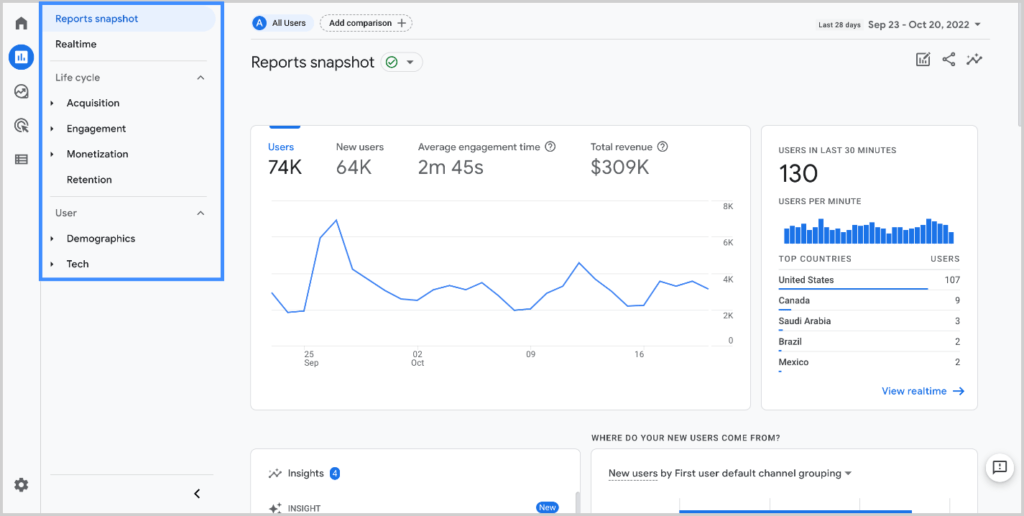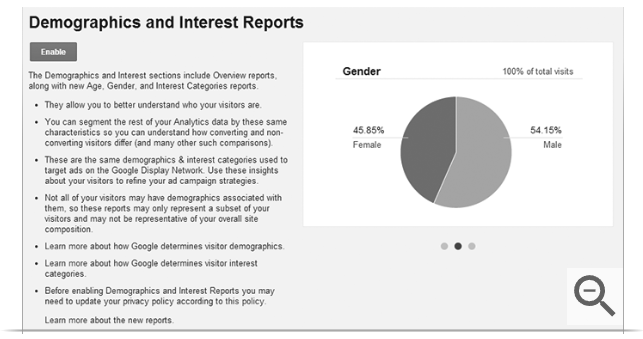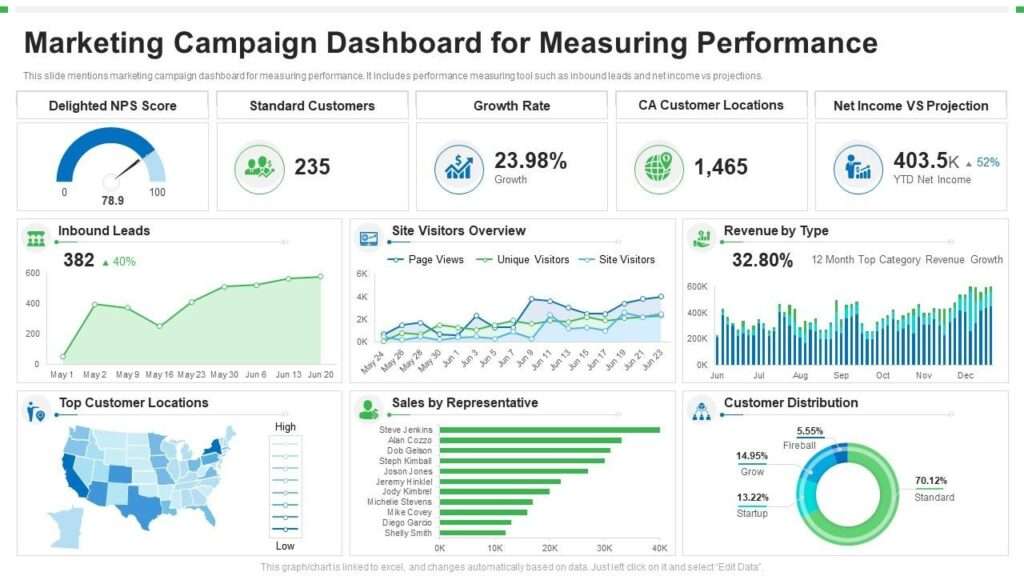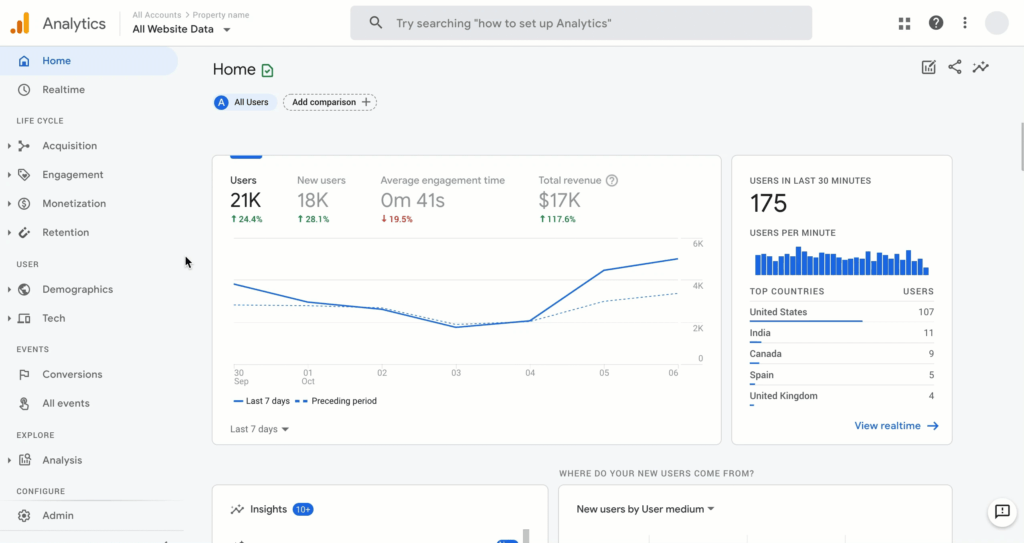
In today’s digital age, Google provides invaluable tools and insights to help businesses optimize your marketing strategies. One such tool is Google Analytics, which offers a wealth of data and reports to enhance marketing campaigns. In this blog post, we will delve into the various aspects of leveraging Google Analytics for optimizing your marketing strategy. From setting up the platform to utilizing advanced features, we’ll cover it all, providing informative tips along the way. So let’s dive in!
01 – Setting Up Google Analytics:
Setting up Google Analytics correctly is the first step toward gaining valuable insights about your website’s performance.

Here are some important steps to follow:
- Create a Google Analytics account: Sign up for an account and obtain the tracking code.
- Install the tracking code: Add the tracking code to all pages of your website to collect accurate data.
- Set up goals and conversions: Define goals and conversions to measure key metrics like sales or sign-ups.
- Enable e-commerce tracking: If you operate an online store, enable e-commerce tracking to analyze sales performance effectively.
Understanding these steps will ensure a successful setup and enable you to gather accurate data for analysis.
02 – Understanding Google Analytics Reports:
Google Analytics provides a wide range of reports that offer valuable insights into your website’s performance.

Here are some key reports to focus on:
- Acquisition Report: This report helps you identify the most effective channels for driving traffic to your website. Analyze which sources (e.g., organic search, paid advertising, social media) are bringing in the most visitors.
- Behavior Report: Dive into user behavior, popular pages, and drop-off points to optimize the user experience. Identify which pages are performing well and where users tend to exit your site.
- Conversion Report: Track the effectiveness of your goals and conversions to measure the success of your marketing efforts. Monitor key conversion metrics such as conversion rate, revenue, and ROI.
Understanding these reports will enable you to make data-driven decisions to optimize your marketing strategy.
03 – Analyzing Audience Behavior:
Analyzing your audience’s behavior is crucial for tailoring your marketing efforts effectively.

Here are some important aspects to consider:
- Demographic data: Utilize demographic data provided by Google Analytics to understand the age, gender, and location of your audience. Tailor your marketing campaigns accordingly to target the right audience.
- Audience interests: Explore the interests of your audience to create personalized content and targeted ads that resonate with them. Use this information to refine your messaging and improve engagement.
- Behavior Flow report: Analyze the Behavior Flow report to understand how users navigate through your website. Identify potential bottlenecks or areas of interest to optimize the user journey and increase conversions.
By analyzing your audience’s behavior, you can better understand their preferences and optimize your marketing strategy accordingly.
04 – Measuring Marketing Campaigns:
Measuring the performance of your marketing campaigns is essential to understand their impact and allocate resources effectively.

Here are some strategies to measure and analyze your campaigns:
- UTM parameters: Implement UTM parameters in your campaign URLs to track the performance of different marketing channels accurately. This allows you to identify which campaigns are driving the most traffic and conversions.
- Campaign tagging: Use campaign tagging to categorize your ads and links, making it easier to monitor their performance within Google Analytics. Tagging campaigns helps you analyze the effectiveness of individual marketing initiatives.
- Multi-Channel Funnels: Leverage Multi-Channel Funnels to gain insights into the customer journey across different touchpoints. Understand how various marketing channels interact and influence conversions, allowing you to optimize your marketing mix.
By effectively measuring your marketing campaigns, you can make data-driven decisions to improve their performance and maximize your return on investment.
05 – Optimizing Website Performance:
A well-performing website is crucial for a successful marketing strategy.

Here are some tips to optimize your website’s performance:
- Site speed analysis: Conduct a thorough site speed analysis to identify and resolve any speed-related issues that could impact user experience and conversion rates. Optimize page load times for better engagement.
- Mobile optimization: Ensure your website is mobile-friendly to cater to the increasing number of mobile users. Optimize for responsive design and provide a seamless mobile user experience.
- Landing page analysis: Evaluate the effectiveness of your landing pages and make necessary improvements to enhance conversion rates. Test different variations, optimize based on user behavior, and incorporate persuasive elements.
By continuously optimizing your website’s performance, you can provide a seamless user experience and improve overall marketing effectiveness.
06 – Advanced Google Analytics Features:
To take your analysis to the next level, Google Analytics offers advanced features that provide deeper insights into your data.

Here are some advanced features to explore:
- Custom dashboards: Create personalized dashboards to display the most relevant metrics and reports for your business. Customize the data visualization to focus on key performance indicators and track progress effectively.
- Enhanced e-commerce: Utilize enhanced e-commerce tracking to gain detailed product and sales data, enabling better decision-making for your online store. Understand customer behavior, optimize product offerings, and improve the overall shopping experience.
- User flow analysis: Analyze the user flow on your website to identify potential drop-off points and optimize the customer journey. Gain insights into how users navigate through your site, allowing you to make informed optimizations and drive conversions.
By exploring these advanced features, you can unlock deeper insights and gain a competitive edge in your marketing strategy.
Conclusion:
Optimizing your marketing strategy with Google Analytics is a powerful way to enhance your campaigns and drive better results. By following the steps outlined in this comprehensive guide and implementing the provided tips, you’ll be equipped with the knowledge and tools to make the most of Google Analytics. Let it empower your marketing efforts and unlock new avenues of success!
Stay updated on the latest digital marketing news and strategies by subscribing to our blog and following us on social media. We provide valuable insights and tips to help you succeed in your online endeavors.

I am Prakash, an entrepreneur, a skilled digital marketing consultant, a trainer, and a speaker.
So, if you wish to upskill your team, upgrade your digital strategies or leverage your brand presence on digital media, feel free to get in touch with me.